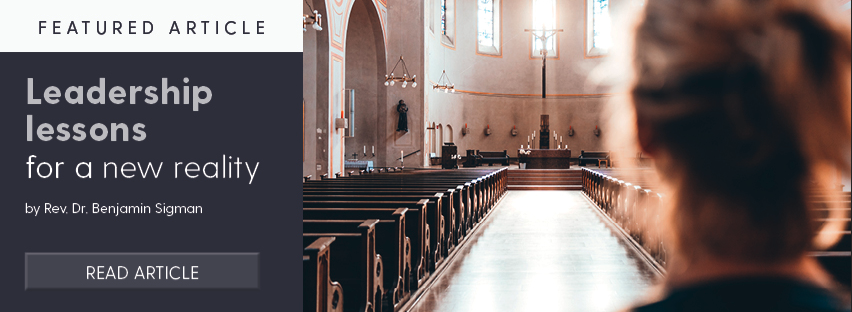
This has been one of the most confusing seasons in our lived history. Take a pandemic; mix in a bunch of weird political stuff; add a few racial inciting events; and call it 2020-21. To refer to the last 18 months as a challenge, would be a huge understatement. However, one of the benefits of hard seasons is that they have a way of exposing some rough spots in each of our lives, our leadership, and our organizations. As I have paused and reflected on what we are emerging from, I realize that there is a new set of underlying assumptions which we must adopt and allow to fundamentally change our approach, particularly in the arena of church ministry, if we hope to remain relevant and effective moving forward.
1. ACCELERATED REALITY: We lost a decade. Today, we are living in what 2031 would have looked like, but it happened now. We can resist this and drift into obscurity, or we can embrace it and position ourselves to play a significant role in helping people navigate the challenges ahead. No doubt this will require taking risk, learning from our mistakes and quickly redirecting our efforts.
2. THE GREAT RESIGNATION: This season is marked by the largest loss of senior pastors and church staff in known history. As organizations and churches navigate these often unwanted and perhaps even unexpected staffing transitions, let me offer you a hope-filled perspective: First, God is still in control. Secondly, the church is His bride, and He will fight to protect and preserve her. Finally, I wonder if part of the great resignation is actually a strategic God initiative to reorganize and deploy His church leaders. I believe that God is always working to position His leaders in just the right place, at any given time, in order to contribute to the kingdom in ways that would not be possible otherwise.
3. THE BIG SWAP: The people who came back to church didn’t necessarily come back to the same church they left. Many individuals and families are taking this opportunity to reconsider what is most important to them. Interestingly, those who are coming back seem to be leveling up in their commitment to Christ and, thus, are looking for a church that is serious about helping them apply their faith in meaningful ways to their everyday lives.
4. THE SAD GOODBYE: Due to the ripple effects of the pandemic, many churches have had to shut down or are in the process of closing their doors. According to Barna Research Group, around 20% of smaller churches will not survive.(1) On top of that, Barna along with several other researchers have stated that approximately 32% of regular church attenders did not make the shift to online services during the shutdown.(2) Now more than ever, we need to look around our auditoriums and notice who is missing. Who is no longer connecting with us and what will we do about it?
5. LESS PEOPLE WILL RETURN TO IN-PERSON CHURCH: According to Warren Bird of Lifeway Research, overall church attendance is predicted to recover at 80% of 2019 levels.(3) However, that mark is still a long way off. Current attendance levels are trending well below that mark for most churches.(4)
6. ONLINE IS REAL CHURCH: Online church isn’t going away. If you haven’t already, this is the time to embrace a permanent hybrid: in-person and online. Do you remember just a few years ago when people debated if online church really counted? We bantered back and forth wondering if meaningful connections and spiritual development could really be accomplished in a virtual setting? Worship is essential. Christianity is both personal and corporate. We are called to gather. Over 30 years of ministry, I have not met a single person who is remotely mature in their faith who is not connected regularly in community. In this last season, I have seen many individuals take significant spiritual steps through our online community.
Before the pandemic somewhere around 3-4% of church goers viewed online church as a viable and preferred option for them and their families.(5) Moving forward, online will be a legitimate spiritual community for many more, plus another large percentage of our physical attenders will take advantage of a virtual option in addition to occasionally attending in-person.
7. BALKANIZATION IS OUR CURRENT REALITY: Balkanization is a term used to describe the division of a people into smaller hostile units of like-thinking groups. We are definitely experiencing balkanization on issues of critical race theory, LGBTQ, masks, vaccines, and politics. Americans have chosen distinct camps and want to be in a church that reflects their particular camp. Interestingly, this extreme polarization has resulted in transfer growth for the hyper-right.
The pandemic has changed life for everyone, and churches along with their leaders are certainly no exception. The future, especially the next 18 months, will be precarious for a number of churches, but for the nimble and focused it will provide significant opportunities for outreach and kingdom expansion.
Benjamin Sigman, D.Min., is the lead pastor of Timberlake Church and the co-superintendent of the Reach Conference.
[1] https://outreachmagazine.com/resources/research-and-trends/59661-research-1-in-5-churches-may-close-due-to-pandemic.html
[2] https://www.barna.com/research/new-sunday-morning-part-2/
[3] https://careynieuwhof.com/episode367/
[4] https://lifewayresearch.com/2020/10/20/few-churches-back-to-pre-covid-attendance-levels/ and https://christianstandard.com/2021/05/church-survey-facts-and-figures-from-a-funky-year/
[5] http://hirr.hartsem.edu/megachurch/2015_Megachurches_Report.pdf
